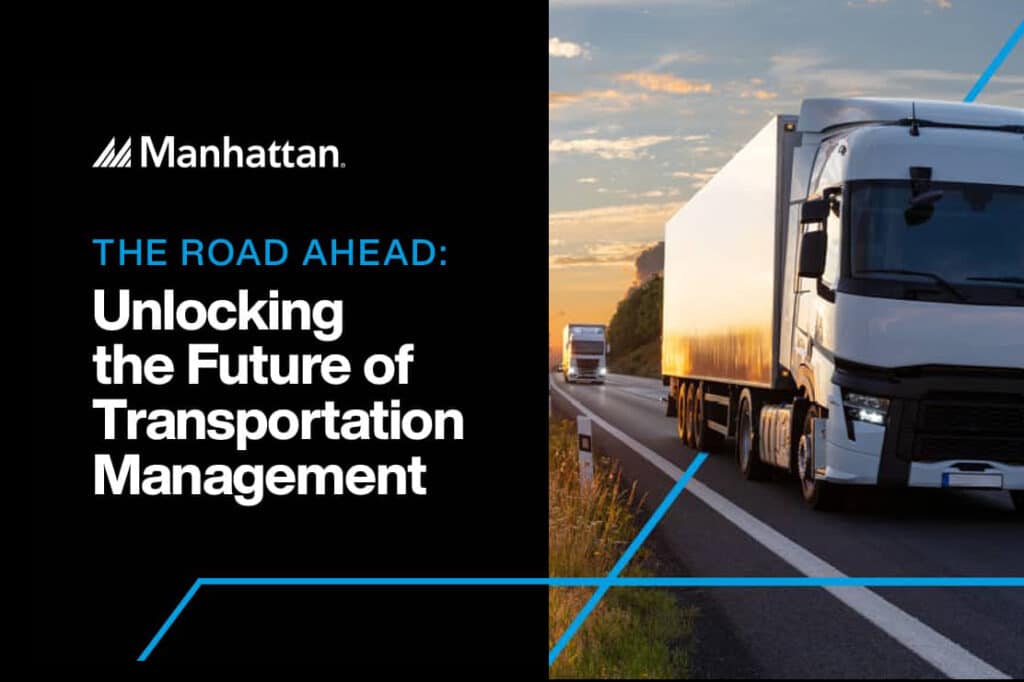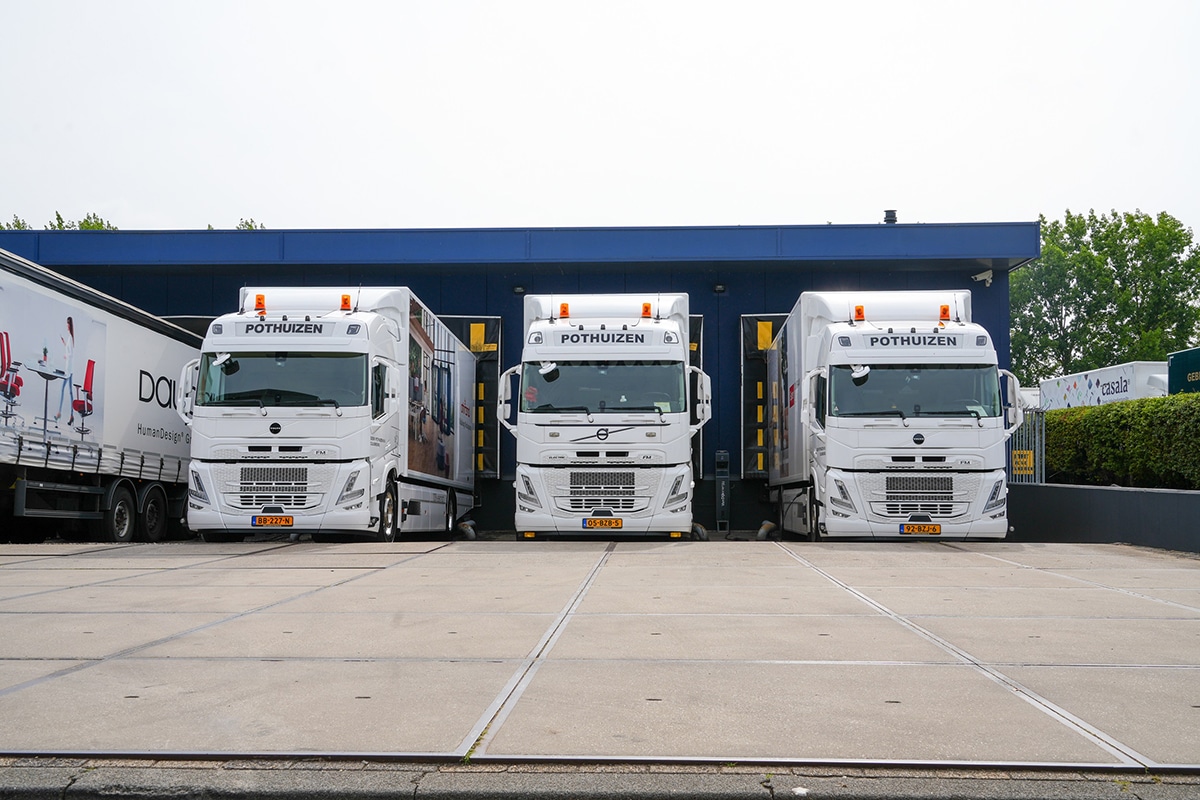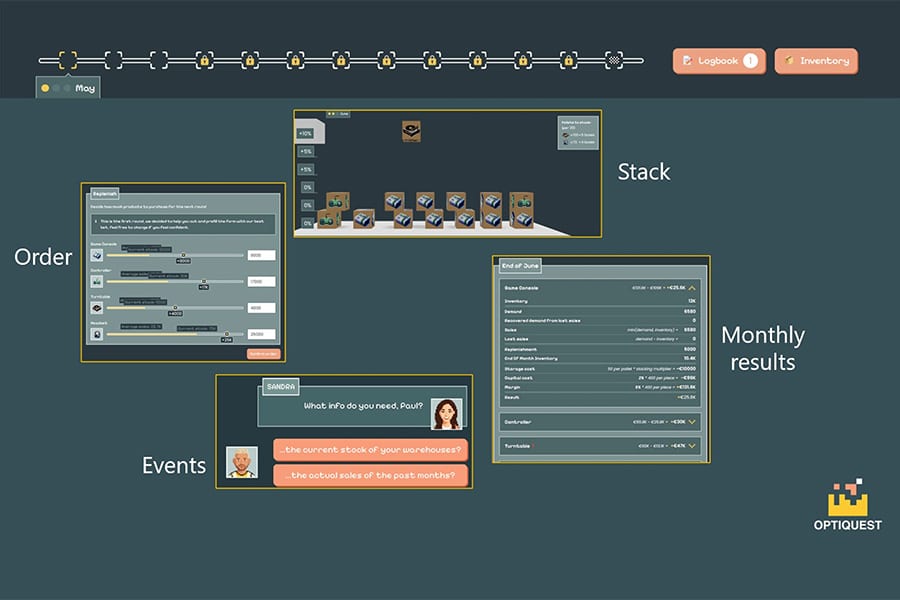
Autonomous agents revolutionize transportation management
Manhattan Associates' global research shows that integration issues and data quality remain hurdles for organizations looking to deploy artificial intelligence for transportation management.
Manhattan Associates Inc., the world leader in supply chain commerce, announces the results of its latest collaboration with international research firm Vanson Bourne. The global survey involved 1,450 senior decision makers from organizations in the manufacturing, retail, wholesale, consumer products, food and food & beverage sectors in North America, Latin America, Europe and Australia.
"Transportation is the backbone of supply chains and is essential to ensuring products are delivered on time to meet customer expectations," said Bryant Smith, director of Transportation Management Systems (TMS) at Manhattan Associates. "But transportation management is becoming increasingly complex. There is pressure from demands for shorter delivery times, capacity and cost efficiencies, strict legislation around sustainability and the increased need for access to end-to-end visibility across all business operations."
Fragmented systems: operational visibility and efficiency still a challenge
The real value of visibility goes beyond access to operational data. It can address problems uncovered by the information and make operational improvements faster and more efficiently. But it's about more than just disruptions: 60% of organizations say better visibility leads to greater customer satisfaction thanks to more accurate and timely updates. 50% say a reduction in transportation costs is a key benefit of increased operational visibility.
The AI revolution: enthusiasm but also challenges
61% of organizations expect that fully autonomous Agentic AI will be able to act autonomously to achieve specific goals in the next five years. But only 37% currently have AI and machine learning deeply integrated into their TMS.
Five years may seem like an eternity in the AI era, but the gap between future expectations and current usage is striking because adoption is rarely straightforward. Although nearly half (48%) say they are already well prepared for autonomous agents in 2030, nearly every organization (99%) says they see or expect to see obstacles. Issues of concern include skills shortages (49%), integration problems (44%) and data quality and availability issues (44%).
Many organizations seem well positioned to take advantage of the cost, efficiency and scalability benefits of autonomous agents. But these organizations must rethink their AI strategies or they risk losing significant (and possibly irreversible) market share.
Sustainability compliance: priority and major pain point
There is a strong and significant push for more sustainable transportation. 69% of the organizations say sustainability is either imposed globally or is an issue with significant pressure. 62% have already implemented the Corporate Sustainability Reporting Directive. Navigating complex and changing compliance requirements remains a global challenge. Sustainability compliance is most often cited as a constraint that will impact business performance over the next five years. A modern TMS can help provide the data visibility and functionality needed to measure progress and demonstrate compliance. This is essential to ensure that sustainability does not fade into the background at organizations.
Smith sums it up, "Modern transportation management requires organizations to balance conflicting priorities. The research clearly shows that many organizations are not yet prepared for the challenges of changing sustainability requirements, expectations about AI and the need for more visible, actionable data insights. By 2030, these demands will only have increased, increasing the pressure on organizations to execute transportation operations smarter and more intuitively."
"87% of respondents expect challenges around operational visibility, AI implementation and sustainability compliance to increase, making it difficult for their current transportation management systems to keep up. If organizations do not take action now, they will face rising costs, questions about long-term effectiveness and risk failing to deliver on their promises to customers," Smith said.
Other results
- 48% of organizations spend more than 10% of their logistics transportation budget on errors and disruptions.
- 78% sees transportation management as a strategic imperative for success, and for 2030 it is 86%.
- 61% expects for TMS fully autonomous Agentic AI, which can act independently to achieve specific goals, or minimal human supervision, in the next five years.
- 50% reports challenges in proactively rerouting shipments, while 49% struggles with optimizing staff scheduling of dock and warehouse operations.
- 82% believes that advances in planning, forecasting and modeling will reduce freight costs by at least 5% over the next five years.
- Organizations are still struggling to operationalize sustainability: only 34% says they have incorporated sustainability into operational planning, 30% into purchasing decisions, and only 31% offers climate-friendly fuel solutions.
- Although a majority have integrated their TMS with sales and operational planning systems (60%) and use predictive analytics or AI (56%), far fewer organizations use key tools such as historical trend analysis (38%), automated booking and procurement (36%) or real-time demand detection (35%).
Visit the website for more information about this study.
Methodology
Vanson Bourne surveyed 1,450 senior decision makers with responsibility for or knowledge of their organization's transportation management operations, with transportation, logistics, supply chain, IT or finance roles. Respondents were required to work within the manufacturing, retail, wholesale, consumer goods, food, and food & beverage sectors. The survey included respondents from North America, Latin America, Europe and Australia. All respondents were from organizations with annual global sales of at least $750 million.




